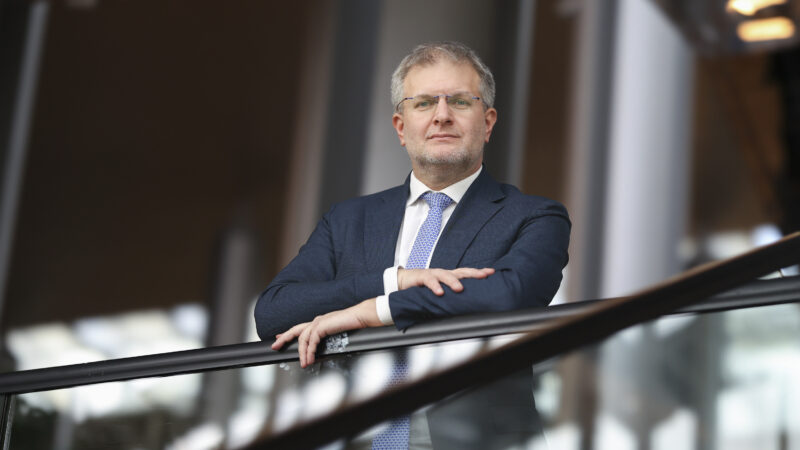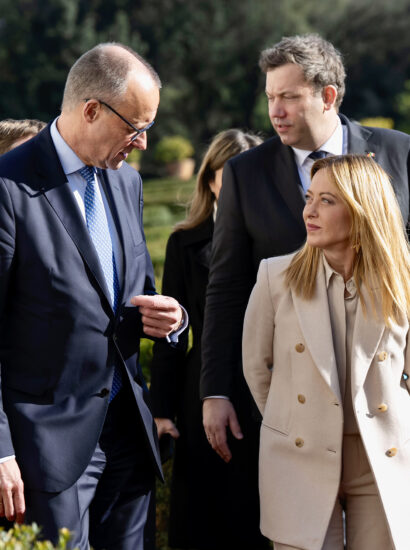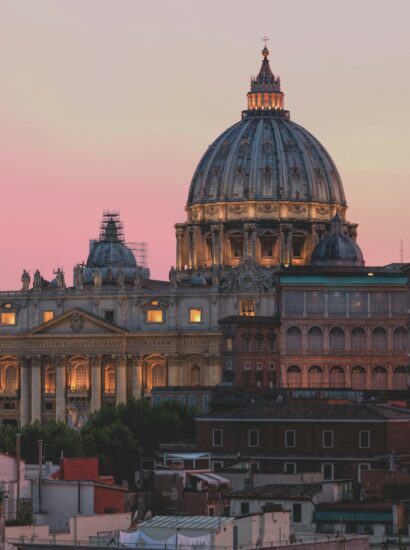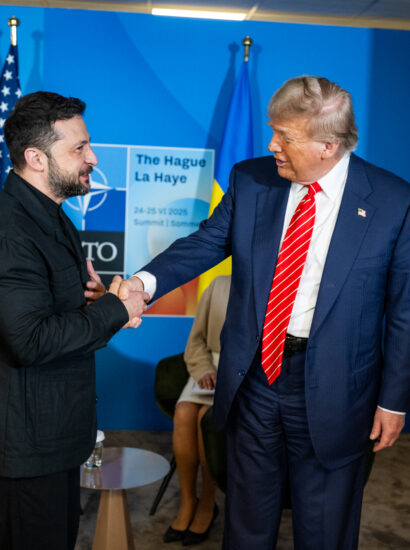What is your evaluation of what has been achieved so far in the first two years of Giorgia Meloni’s term of office?
Finally, Italy has returned to playing a leading role in Europe and the world. We came from many years of fragile governments supported by unnatural majorities, which inevitably weakened our nation.
Today, we have a clear and decisive stance on all major issues and can play our part in every field.
I am thinking of fundamental issues such as the fight against illegal immigration and the battle to move away from ultra-green ideology—topics on which Giorgia Meloni has personally intervened in European forums to reverse the course that was leading us to decline, breaking through the EU policies.
The road ahead is still long, and there is much work to be done. However, the shift in approach has been visible and decisive.
Recently, the macroeconomic data of the Italian government have been published and it seems that they have been quite positive. What have been the main measures to achieve this success?
The Italians voted for us to put an end to the left’s welfare policies, relaunch employment, build a tax system that supports citizens and businesses, simplify life for companies, and boost productivity.
We are achieving this with important measures, starting with the reduction of the tax wedge and incentives for hiring, followed by tax reform, the extension of the flat tax for the self-employed, the increase in the fringe benefit threshold, and the strengthening of the single allowance and parental leave to protect the most vulnerable families.
Moreover, by canceling the massive financial black hole called the “Superbonus,” we have reduced its impact on public accounts. Not to mention the excellent work done so far on the PNRR (National Recovery and Resilience Plan).
Today, Italy has solid economic fundamentals: the spread is at its lowest, the stock market is at its highest, and we have a record number of employed people, mainly in permanent positions and among women.
We have therefore created a favorable environment for foreign investments—contrary to those who, three years ago, spread fear about the consequences of a Meloni victory.
Also, in the latest data from the Italian government it has been published that illegal immigration has been reduced by 60 percent. What has the Italian executive done to reduce illegal immigration, is it enough or will there be more measures?
The turning point came when Giorgia Meloni started signing agreements with North African countries—starting with Tunisia, Libya, and Egypt—convincing the EU to do the same.
We have also strengthened internal regulations to speed up the repatriation of irregular migrants and impose stricter penalties on human traffickers and the mafias managing them. Additionally, we have strongly pushed the issue of extra–EU hotspots in Europe (with the opening of two centers in Albania), and today, this is among the innovative solutions being considered by the EU Council and Commission.
Despite a minority of politicized judges trying to prevent us from achieving these goals, we will not stop. We hope that the Court of Justice will confirm the regulations on “safe third countries,” without which it would become impossible for all member states to defend Schengen and regulate immigration.
Otherwise, it would mean the end of Europe as we know it and an open invitation for all the world’s desperate people to reach our continent.
The Greengate scandal recently emerged, what is your assessment of it?
As you know, I was the first to call for the urgent establishment of an investigative commission to shed light on what seems to be a massive and concerning scandal.
The left, which has done everything to avoid discussing it, tried to downplay the incident as minor. However, we have a strong suspicion that what De Telegraaf reported is only the tip of the iceberg.
The fact that the EU Commission, using European taxpayers’ money, paid green NGOs to lobby MEPs into promoting the Timmermans agenda is disturbing – both because these are the policies that have pushed entire productive sectors to the brink and because there is a risk that the same method has been used for other major issues.
This could be an unprecedented anti-democratic scandal in European history.
On January 28-29, the MEGA second edition event was held in Brussels, where politicians from the EPP, ECR, PfE and ESN participated, in fact, you were a speaker. Do you think there can be real cooperation among the European right?
Over the years, we have made the European Conservatives and Reformists (ECR) Group a key partner for all forces that are fed up with politics based on green ideology, single-minded thinking, and woke doctrine.
What interests us is continuing down this path, building – on specific issues – alternative center-right majorities that can finally free the European People’s Party (EPP) from its deadly embrace with socialist and ultra-environmentalist leftists.
The political landscape in Europe is constantly evolving. The wind of change is blowing to the right, and those who stir up outdated fears are simply burying their heads in the sand.
We want a Europe that does less but does it better, that defends borders, jobs, families, and identities. Anyone who shares this vision is welcome—always remembering that there is a precise reason why, within the center-right, distinct political groups exist.
With the arrival of Donald Trump in the White House, do you think European Commission President Ursula von der Leyen and the European People’s Party can keep their stance on illegal immigration?
Trump’s election and inauguration certainly contributed to bringing a wave of realism to Europe, even on the issue of immigration. However, before Trump, Giorgia Meloni had already succeeded in this, and last June’s European elections confirmed strong popular support for greater migration control—just like in the United States.
Now, it is clear that we must move from words to action. We expect a lot from the revision of the Return Directive and are open to a European list of safe countries.
Beyond refugees, we must regain control of our borders and decide who has the right to enter, in what numbers, and with what characteristics. This is a task for politics, not human trafficking mafias.
Finally, USAID has been compromised in cases of funding media outlets such as Politico. Do you think that agency may have financed media or movements against Fratelli in Italy?
For now, we have no evidence of this, but it is clear that, at an international level, some forces are interested in slowing the rise of conservative movements like ours and undermining our work.
These forces have invested significant resources in trying to influence the political agendas of European nations, including Italy. In our country, the Soros network openly finances left-wing political parties and foundations, which—coincidentally—are the same ones producing biased reports that are often irresponsibly accepted by the EU Commission.
In many cases, European taxpayers’ money is even used to fund them. This is a vicious cycle that must be broken in the name of transparency.
Voters have developed antibodies against certain interferences, because, in the end, the truth is evident to everyone and is much stronger than any propaganda.







